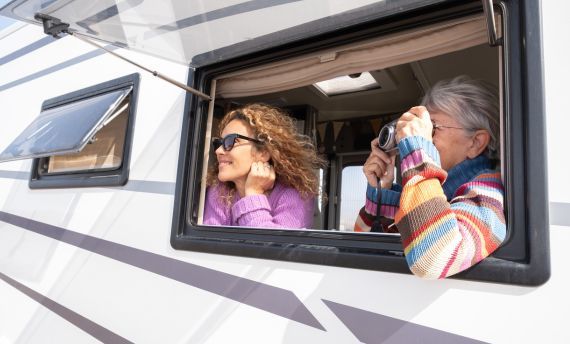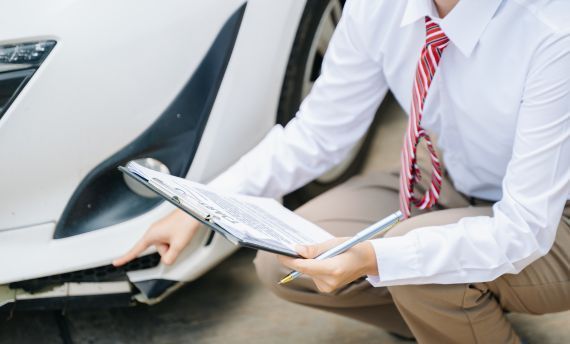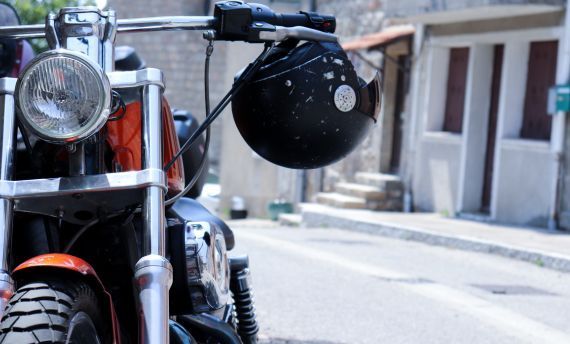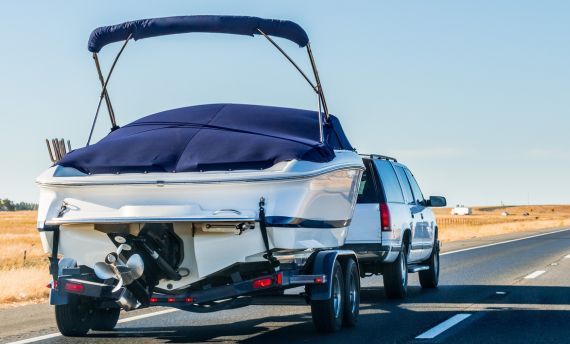5 Common Misconceptions About RV Insurance Coverage and What to Know in Pennsylvania
GET INSURED NOW
Recreational vehicles (RVs) are a popular choice for adventure seekers and families looking to explore the great outdoors. However, with the joy of RV ownership comes the responsibility of ensuring proper insurance coverage. Many RV owners in Pennsylvania may have misconceptions about what their insurance actually covers. Understanding these misconceptions is crucial for making informed decisions about RV insurance. This article will delve into five common misconceptions about RV insurance coverage and provide clarity on what RV owners in Pennsylvania need to know.
Misconception 1: RV Insurance Is Just Like Car Insurance
One of the most prevalent misconceptions is that RV insurance operates under the same principles as standard auto insurance. While there are similarities, the two types of insurance differ significantly in coverage, requirements, and costs.
Understanding the Differences
RV insurance typically includes coverage specific to the unique aspects of RV ownership, such as personal belongings, campsite liability, and full-time living coverage. Unlike standard car insurance, which primarily covers liability and physical damage, RV insurance often accounts for the vehicle's use as a temporary home. This means that RV insurance policies are designed to protect not just the vehicle itself but also the lifestyle that comes with RV living, including the potential risks associated with travel and outdoor living.
Moreover, RV insurance can also provide coverage for items that are typically not included in standard auto policies, such as awnings, satellite dishes, and other accessories that enhance the RV experience. This specialized coverage is crucial for RV owners who invest significantly in their vehicles and the gear that comes with them, ensuring that they are adequately protected against a range of potential losses while on the road or parked at a campsite.
Types of Coverage
In Pennsylvania, RV owners can choose from various coverage options, including liability, collision, comprehensive, and personal property coverage. Understanding these options can help owners tailor their policies to fit their specific needs, especially if they use their RV for extended periods or as a primary residence. For instance, liability coverage is essential for protecting against damages or injuries caused to others in an accident, while collision coverage helps pay for repairs to the RV itself after an accident.
Additionally, comprehensive coverage is invaluable for safeguarding against non-collision-related incidents, such as theft, vandalism, or natural disasters. Personal property coverage, on the other hand, protects the belongings inside the RV, which can include everything from clothing and electronics to camping gear and kitchen supplies. With the right combination of these coverage types, RV owners can ensure that they are fully protected, allowing them to enjoy their adventures with peace of mind.
Misconception 2: Full Coverage Means Everything Is Covered
Many RV owners mistakenly believe that having "full coverage" means they are entirely protected against any potential loss. However, this term can be misleading.
What Full Coverage Actually Includes
Full coverage typically refers to a combination of liability, collision, and comprehensive coverage. While this may seem comprehensive, it does not cover everything. For instance, it often excludes certain types of damage, such as wear and tear, and may not cover personal belongings inside the RV unless specifically included in the policy.
Additional Coverage Options
To ensure complete protection, RV owners should consider additional coverage options such as personal property coverage, roadside assistance, and vacation liability. Each of these can provide added peace of mind while traveling or living in an RV. Personal property coverage is particularly important for those who travel with valuable items, as it can safeguard belongings like electronics, camping gear, and personal effects against theft or damage. Similarly, roadside assistance can be a lifesaver in emergencies, offering services like towing, tire changes, and fuel delivery, which can be especially beneficial when venturing into remote areas.
Understanding Policy Limitations
It’s also crucial for RV owners to thoroughly read and understand their policy limitations. Many policies have specific exclusions or caps on coverage amounts that can catch owners off guard. For example, some might limit the amount reimbursed for personal items to a fraction of their actual value or exclude coverage for certain types of natural disasters. Being aware of these limitations allows RV owners to make informed decisions about their insurance needs and seek out additional riders or endorsements that can fill in the gaps, ensuring they have the protection they truly need while on the road.
Misconception 3: RV Insurance Is Only Necessary for Travel
Another common belief is that RV insurance is only necessary when the vehicle is on the road. In reality, RV insurance is essential even when the vehicle is parked or stored.
Liability Coverage at Campsites
When parked at a campsite or on private property, RV owners can still face liability risks. If someone is injured on the property or if the RV causes damage to another vehicle or property, liability coverage is crucial. Without it, the owner could be held financially responsible for these incidents. Furthermore, many campgrounds have specific insurance requirements that must be met before allowing RVs on their premises. This means that having adequate liability coverage is not just a good idea; it is often a necessity for enjoying a worry-free camping experience.
Protection During Storage
Even when an RV is not in use, it is susceptible to theft, vandalism, and natural disasters. Comprehensive coverage can protect against these risks, ensuring that owners are not left with significant financial burdens if something happens while the RV is parked. Additionally, many RV owners choose to store their vehicles in specialized facilities that offer enhanced security features, such as surveillance cameras and gated access. However, even in these secure environments, unforeseen events can occur. For instance, a severe storm could damage the RV, or a break-in could result in the loss of valuable equipment stored inside. Having the right insurance policy in place provides peace of mind, knowing that any potential losses can be mitigated.
Misconception 4: All RV Insurance Policies Are the Same
Many RV owners assume that all insurance policies are created equal, but this is far from the truth. Insurance companies offer various policies with different terms, conditions, and exclusions.
Comparing Policies
When shopping for RV insurance in Pennsylvania, it is essential to compare multiple policies. Some companies may provide better coverage options, lower deductibles, or more favorable terms than others. This can make a significant difference in the level of protection and the overall cost of the policy. For instance, while one insurer may offer a lower premium, it might come with higher deductibles or limited roadside assistance, which could end up costing more in the long run if an emergency arises. Additionally, some policies may include perks such as vacation liability coverage or personal effects coverage, which can be invaluable for those who frequently travel with their RV.
Understanding Policy Exclusions
Each policy may also have specific exclusions that could affect coverage. For instance, some policies may not cover certain types of damage or may have limitations on how long an RV can be used as a residence. Understanding these exclusions can help owners avoid surprises when filing a claim. It’s also important to note that certain activities, such as using the RV for commercial purposes or renting it out, might void coverage altogether. Therefore, discussing your intended use of the RV with your insurance agent can help tailor a policy that meets your specific needs.
Additional Coverage Options
Beyond the basic coverage, RV owners should consider additional options that can enhance their protection. For example, comprehensive coverage can protect against non-collision incidents like theft, vandalism, or natural disasters, while collision coverage will cover damages from accidents. Furthermore, many insurers offer specialized policies for full-timers, which can include unique considerations for those who live in their RVs year-round. This type of coverage often addresses personal liability and provides additional living expenses in the event of a loss, making it crucial for full-time RVers to explore these options thoroughly.
The Importance of Regular Policy Reviews
Another critical aspect of RV insurance that is often overlooked is the importance of regularly reviewing and updating your policy. As your lifestyle changes—whether it’s upgrading to a new RV, changing how often you travel, or even moving to a different state—the coverage you initially selected may no longer be adequate. Regular reviews ensure that your policy reflects your current needs and provides the best possible protection. Additionally, many insurance providers offer discounts for bundling policies or for safe driving records, so staying informed can lead to potential savings as well.
Misconception 5: RV Insurance Is Too Expensive
Cost is often a significant concern for RV owners, leading many to believe that RV insurance is prohibitively expensive. However, this perception can be misleading.
Factors Affecting Insurance Costs
The cost of RV insurance can vary widely based on several factors, including the type of RV, its age, the owner's driving history, and the coverage options selected. By understanding these factors, owners can make informed choices that may help lower their premiums. For instance, newer RV models equipped with advanced safety features may qualify for lower rates, while vintage RVs might have different valuation considerations that could affect pricing. Additionally, the geographical location where the RV is primarily used can also play a role; areas with higher accident rates or theft statistics may lead to increased premiums.
Discount Opportunities
Many insurance providers offer discounts for various reasons, such as bundling policies, completing safety courses, or having a good driving record. Exploring these opportunities can result in significant savings on RV insurance premiums, making it more affordable than many owners initially thought. Furthermore, some insurers provide loyalty discounts for long-term customers or for those who maintain a claims-free record over several years. It's also worth noting that seasonal discounts may be available for RVs that are stored during the off-season, allowing owners to save even more when their vehicles are not in use. By actively seeking out these discounts and understanding the various ways to reduce costs, RV owners can find a policy that fits their budget without sacrificing necessary coverage.
Conclusion
Understanding the common misconceptions surrounding RV insurance is crucial for RV owners in Pennsylvania. By recognizing the differences between RV and auto insurance, the limitations of "full coverage," the necessity of insurance even when parked, the importance of comparing policies, and the potential for discounts, owners can make informed decisions that protect their investments.
Ultimately, having the right RV insurance coverage can provide peace of mind and allow owners to enjoy their adventures without the worry of unexpected financial burdens. It is essential to consult with knowledgeable insurance agents who can help navigate the complexities of RV insurance and tailor policies to meet individual needs.













